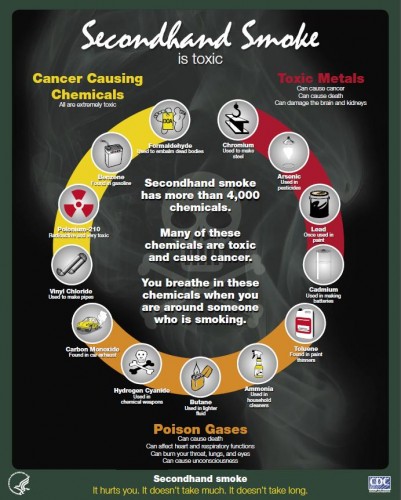 Concerned about children being exposed to secondhand smoke, some state lawmakers want to ban smoking in any private vehicle with a minor in it.
Concerned about children being exposed to secondhand smoke, some state lawmakers want to ban smoking in any private vehicle with a minor in it.
The legislation, sponsored by Sen. Ira Silverstein (D-Chicago), would allow police to fine drivers $100 if someone was smoking in the vehicle, but officers wouldn’t be able to stop a car or truck for this violation.
Though Silverstein said he understands why people would oppose the proposal because it gets into parental control, he thinks such a law is needed because secondhand smoke causes harm.
“I think children are unintended consequences of this, and they don’t have any control [over it],” Silverstein said.
Last May, Illinois legislators passed a House resolution that only encouraged drivers not to smoke while riding with underage passengers but did not actually ban it.
Rep. Marcus Evans Jr. (D-Chicago) was one of the sponsors of the resolution and is also working on passing a House bill that would ban smoking in cars with minors, though his legislation is for minors under the age of 13.
Evans said he decided to focus on attacking the age where you really can’t control where you are.
“The reality is some teenagers actually smoke, and at 19 you can purchase cigarettes,” Evans said. “I felt I had a better opportunity to pass with the age group of 13 and under.”
Evans said his interest in this topic comes from being an eight-year cancer survivor. But for the time being, he has decided to hold the House bill—HB2939— because there isn’t enough support yet.

“Everyone isn’t supportive of regulating parenting,” Evans said. “There is a strategy for passing [a law], and it is still being developed.”
Secondhand smoke is responsible for “an estimated 46,000 deaths from heart disease in people who are current non-smokers” every year in the U.S. alone, according to the American Cancer Society. The society also lists a car as a place where secondhand smoke is a problem because “poisons can build up quickly.”
But David Kuneman, director of research for the Citizens Freedom Alliance, said the studies that claim smoke can build to intolerable levels are conducted with either the ventilation system shut off or no fresh air is being drawn into the car.
“But smokers don’t drive like that,” Kuneman said. “Drivers will always have a window open somewhere in the car.”
Kuneman said he has smoked in his car with nonsmokers in the backseat with no complaints because he usually has a window down.
He notes that if an adult is willing to smoke in a vehicle with children present, then those same adults will probably smoke at home in the presence of their children.
“So the law does nothing to protect the health of a child,” Kuneman said.
Kuneman said the alliance feels that the proposed law is unnecessary and there is so much pressure being put on smokers trying to eliminate any place they could possibly smoke.
“And now [lawmakers] are trying to move into their private automobile,” he said.
But Silverstein said at least if a parent smokes in a house, it could be in a different room – away from children.
According to the Americans For Nonsmokers Rights, six other states already have smoke free vehicle laws in effect.
Silverstein’s bill—SB2659— – was supposed to be considered by the Senate Public Health Committee Feb. 4, but it was delayed until next week because Silverstein wanted to ensure the bill got through the committee.
Sen. John Mulroe (D-Chicago), chairman of the Public Health Committee, said he doesn’t know what the fate of the bill would have been if it were heard.
For Mulroe, smoking in the car with your children is a crazy thing to do.
Mulroe said he hasn’t decided whether he will support the bill because he wants to make sure there is actually a problem first.
“I don’t want to nitpick every situation,” he said.
Mulroe said he thinks most people wouldn’t smoke in a car unless they got permission from people in the car, but those are reasonable people.
“If every one was a reasonable person, we would need a lot less laws on our books,” Mulroe said. “But we have to deal with people who aren’t rational, that’s why we need laws.”
Silverstein said he knows people don’t like government getting into their lives too much. But he compares this law to when legislators were trying to regulate seatbelts. He said this proposal may or may not save lives, but at least they can try.













Be First to Comment